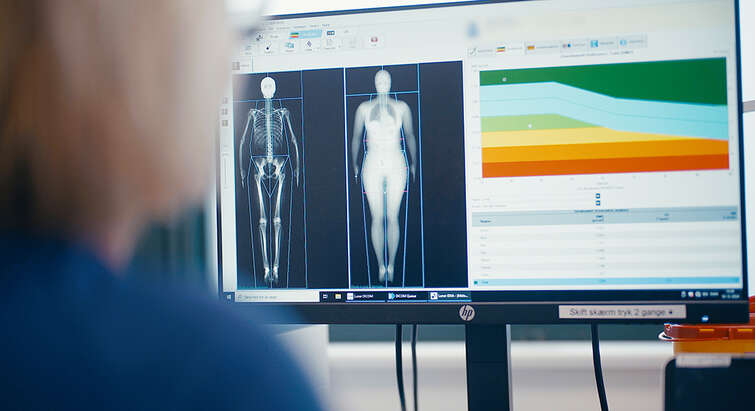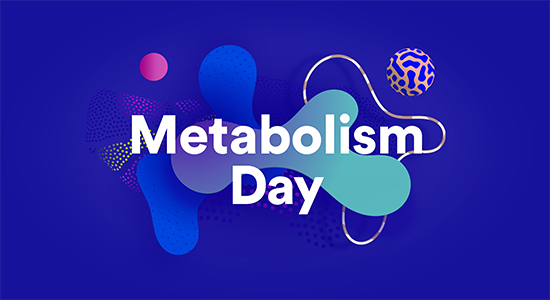
Precision Health in Obesity and Metabolism in the Loos Group
Our goal is to identify the key genetic and non-genetic determinants of body weight regulation to gain insight into the biology that underlies obesity and metabolism, and additionally, to improve prediction, prevention and treatment through implementation of precision health strategies.

We study the causes, consequences, prevention and treatment of obesity, collaborating closely with basic, translational and clinical researchers.
Our research program focuses on three projects:
-
In the first project, we aim to gain insight into the deeper layers of biology that underlie body weight regulation and fat distribution, through the discovery of genes and genetic variations that are associated with obesity and other adiposity traits.
-
In the second project, we determine the genetic and non-genetic determinants of body weight through deep-phenotyping of individuals at high vs. low genetic risk for obesity in recall-by-genotype studies.
-
In the third project, we will build a precision health cohort to identify key predictors of individuals’ metabolic response to diet and exercise to improve precision of lifestyle recommendations for optimal health.
"Genome-wide discovery of genetic loci that uncouple excess adiposity from its comorbidities"
Published in Nature Metabolism in 2021. This is the first genome-wide search for adiposity-increasing loci that are associated with lower risk of cardiometabolic disease. We identified 62 loci with such association signature and show that genes within these loci are enriched for genes expressed in adipose tissue and locate near chromatin accessibility sites during adipocyte differentiation.
"Protein-altering variants associated with body mass index implicate pathways that control energy intake and expenditure in obesity"
Published in Nature Genetics in 2018. We performed the first large-scale (N>700,000) exome-wide search for low-frequency and rare coding variants that have the potential to alter gene and protein function. While only 14 coding variants for BMI were identified, the findings are important as the variants directly pointed to new likely causal genes that had not previously been implicated in obesity.
"Large-scale genetic studies of body mass index provide insight into the biological basis of obesity"
Published in Nature in 2015. This was the third genome-wide association study by the GIANT Consortium. Because of the large scale (N>350,000), we identified 97 loci robustly associated with BMI and provided strong support for a role of the central nervous system in obesity susceptibility.
Staff list
| Name | Title | Phone | |
|---|---|---|---|
| Atabaki, Natalie | Researcher | +4535333256 | |
| Axisa, Pierre-Paul Jean-Marc G Y | Researcher | +4535334350 | |
| Chimera, Bernadette | Postdoc | +4535328326 | |
| DSilvia, Sheldon | Visiting PhD Student | ||
| Diez, Virginia | External | +4535333122 | |
| Eberl, Erica Elizabeth | Research Assistant | +4535322304 | |
| Forman, Annemette | Biomedical Laboratory Scientist | +4535337009 | |
| Halvor, Anna Vittrup | Academic Research Officer | +4535327331 | |
| Hansen, Martin Kongebro | Nurse | +4535324329 | |
| Hjortshøj, Ane Lund | Nurse | ||
| Horner, David Lyle George | External Postdoc | +4535321614 | |
| Husted, Karina Louise Skov | Senior Consultant with personnel management | ||
| Ingersen, Arthur | External Consultant | ||
| Kaadtmann, Karina Nørgaard | Research Secretary | ||
| Karlsen, Anders | Research Consultant | +4535334186 | |
| Kjølholm, Mathilde Erika | Radiographer | +4535329921 | |
| Lange, Kristine Kjær | Academic Research Officer | ||
| Lim, Aylwin Ming Wee | Postdoc | ||
| Loos, Ruth | Professor | +4535337781 | |
| Manitta, Eleonora | Postdoc | +4535331095 | |
| Marker, Magnus Hyldahl | Academic Research Staff | +4535322535 | |
| Møller, Kristina | Biomedical Laboratory Scientist | +4535325647 | |
| Ottander, Lisa Agnes Kristina | External | +4535329569 | |
| Pedersen, Casper-Emil Tingskov | Guest Researcher | ||
| Pedersen, Martin Zeuthen | Academic Research Officer | +4535336920 | |
| Pii, Jeppe Rahbek | External Consultant | ||
| Smit, Roelof Adriaan Johan | Assistant Professor | ||
| Svenstrup, Victor | PhD Fellow | +4535325856 | |
| Thisted, Nanna Næsby | Bachelor student | ||
| Wang, Jing | Postdoc | +4535332148 | |
| Wang, Xiaoyan | Postdoc | +4535335089 | |
| Wibling, Charlotte | Nurse | +4535327470 | |
| Yu, Guoqi | Postdoc | +4535324961 |





